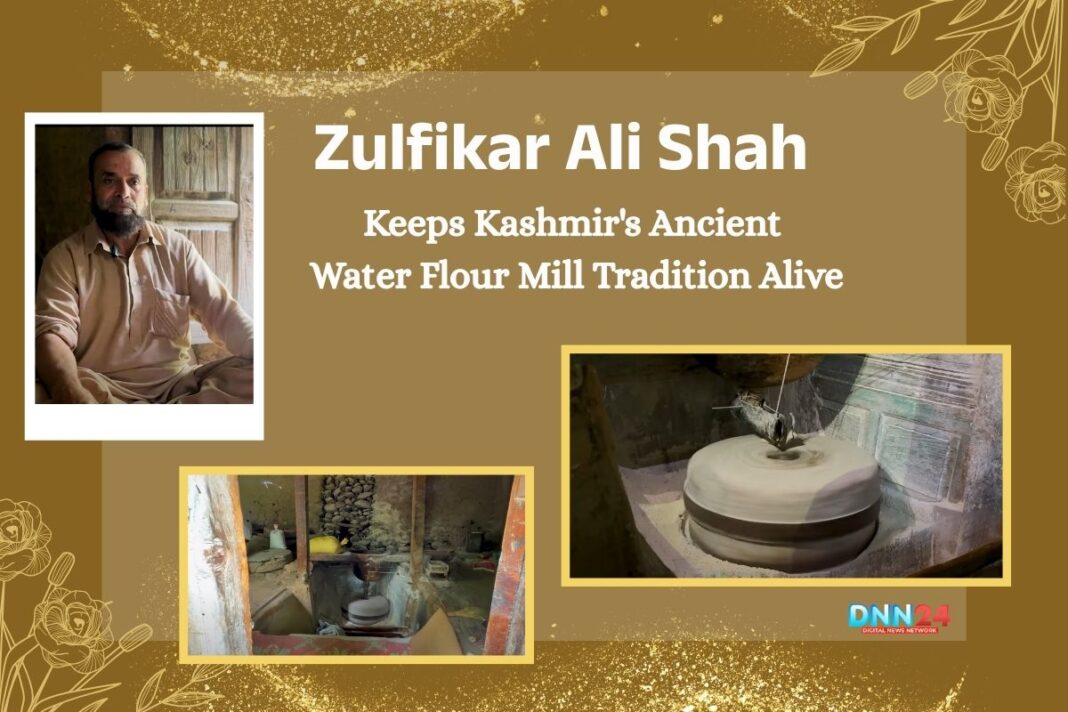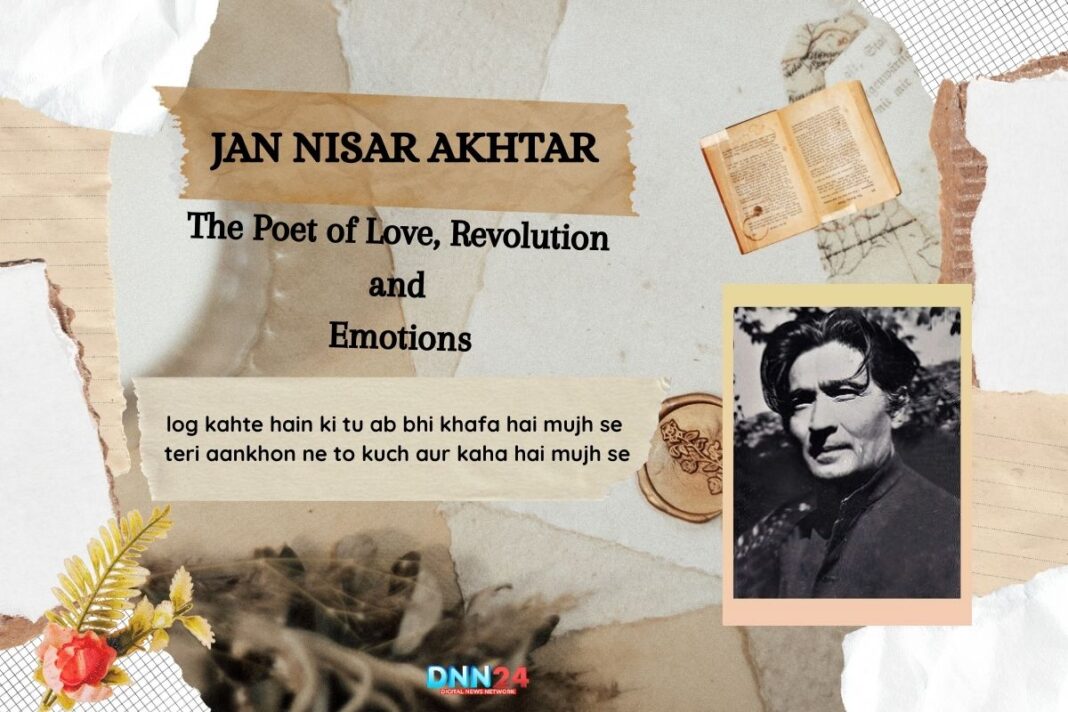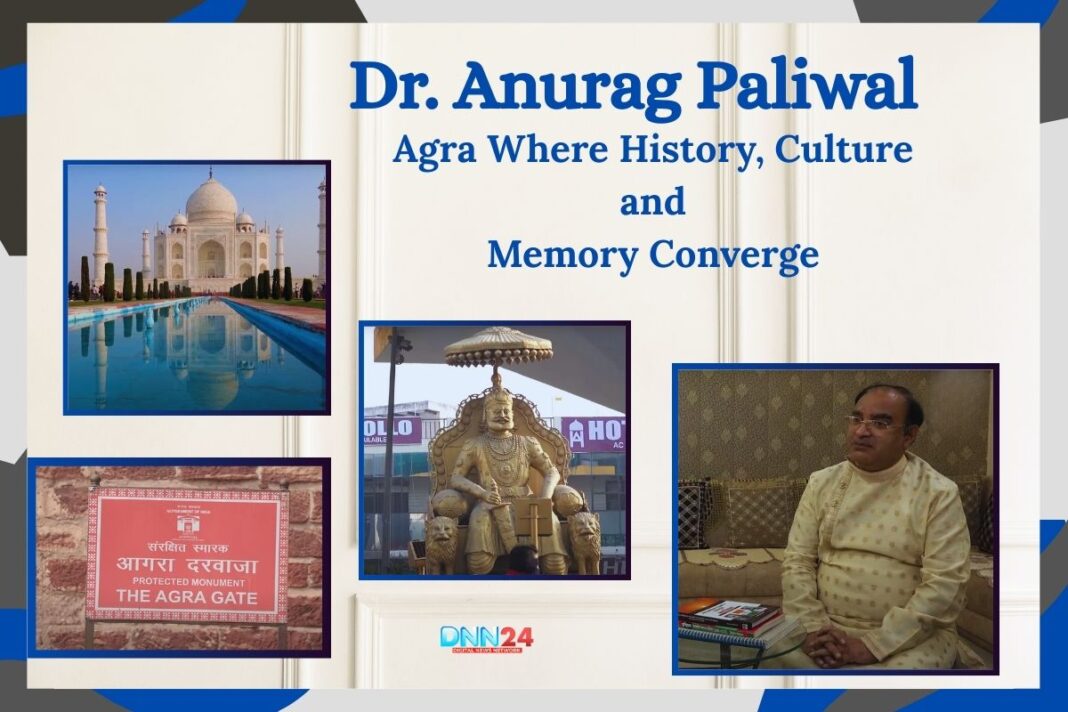In the beautiful hills of Kashmir, where mountain streams flow like silver ribbons through green valleys, lives a man named Zulfikar Ali Shah. He is not just any ordinary person – he is the keeper of an ancient tradition that is slowly disappearing from our world. For 35 years, he has been running a traditional water-powered flour mill called Aab-e-Gratta in Surfera Syed Basti village.
Zulfikar’s story began when his father passed away, and he had to leave his school studies after middle school to take care of the family business. “I had no choice,” he says with a gentle smile. There was no one else in the family—no brothers, no one. So I started this work and have been doing it until today.” His dedication shows how sometimes life takes us on paths we never planned, but we can still find purpose and meaning in our work.
What makes his mill special is that it uses only the natural force of flowing water to grind grains. There is no electricity, no modern machines—just the power of nature that has been working perfectly for hundreds of years. This eco-friendly method produces flour that is completely chemical-free and much healthier than what we get from electric mills.
Zulfikar Ali Shah: How the Magic Water Mill Works
The workings of Zulfikar’s water mill are like watching magic happen before your eyes. The system is beautifully simple yet incredibly effective. Water from the mountain stream flows through a wooden channel called a ‘nala’, which directs the rushing water onto wooden paddles attached to a large wheel. This water wheel is connected to heavy grinding stones through a wooden shaft system.
When the water hits the paddles, it makes the wheel turn. This turning motion moves the upper grinding stone in circles over the lower stone. The grains—whether maize, rice, or wheat—are fed between these two stones. As the rocks rub against each other, they create enough heat and pressure to crush the grains into fine, smooth flour.
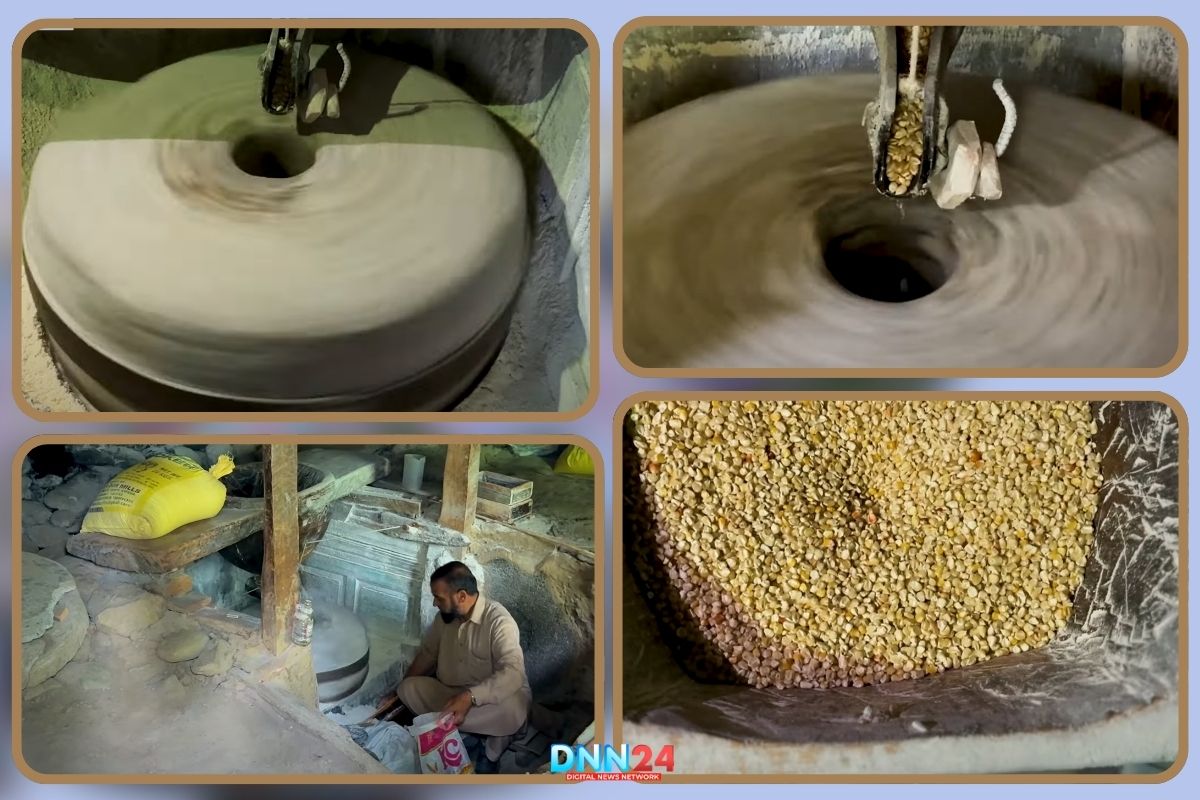
“The stones become very hot when they work,” explains Zulfikar. “It’s like they’ve come out of fire. When they’re hot, we can only grind corn. We have to wait for them to cool down before grinding rice or wheat.” This natural heating process is what makes the flour so special. The heat generated by stone friction creates flour that can stay fresh for up to one year without getting bitter or spoiled – something that machine-made flour cannot achieve.
Zulfikar Ali Shah: The Art of Choosing Perfect Stones
Not just any stones can be used for this ancient milling process. Zulfikar has learned the art of selecting the right stones from his forefathers, and it’s pretty fascinating. The stones come from specific areas along the local streams and have to be of particular types. “We look for stones that are slightly red or blue in colour, but most importantly, they must be soft,” he explains.
The secret lies in having stones of different hardness levels. One stone should be slightly more complicated than the other—if both stones are equally soft or equally problematic, the mill won’t work correctly. These special stones are soft enough to be cut and shaped with tools, yet strong enough to grind grains efficiently.
Local craftsmen, not engineers, build these mills using traditional knowledge passed down through generations. They know precisely which wood to use, how to carve the water wheel, and how to balance the grinding stones. The entire structure is made mainly of wood, with very little iron used. It’s amazing how our ancestors created such efficient machines using only natural materials and their wisdom about how nature works.
Zulfikar Ali Shah: A Treasure for Health and Taste
What comes out of Zulfikar’s mill is not just flour – it’s a treasure of health and natural goodness. The flour produced here has become especially popular among people with diabetes and other health problems. “Doctors recommend our stone-ground corn flour for sugar patients,” says Zulfikar proudly. “The flour from electric machines is hot in nature and can cause throat problems, but our flour is different.”
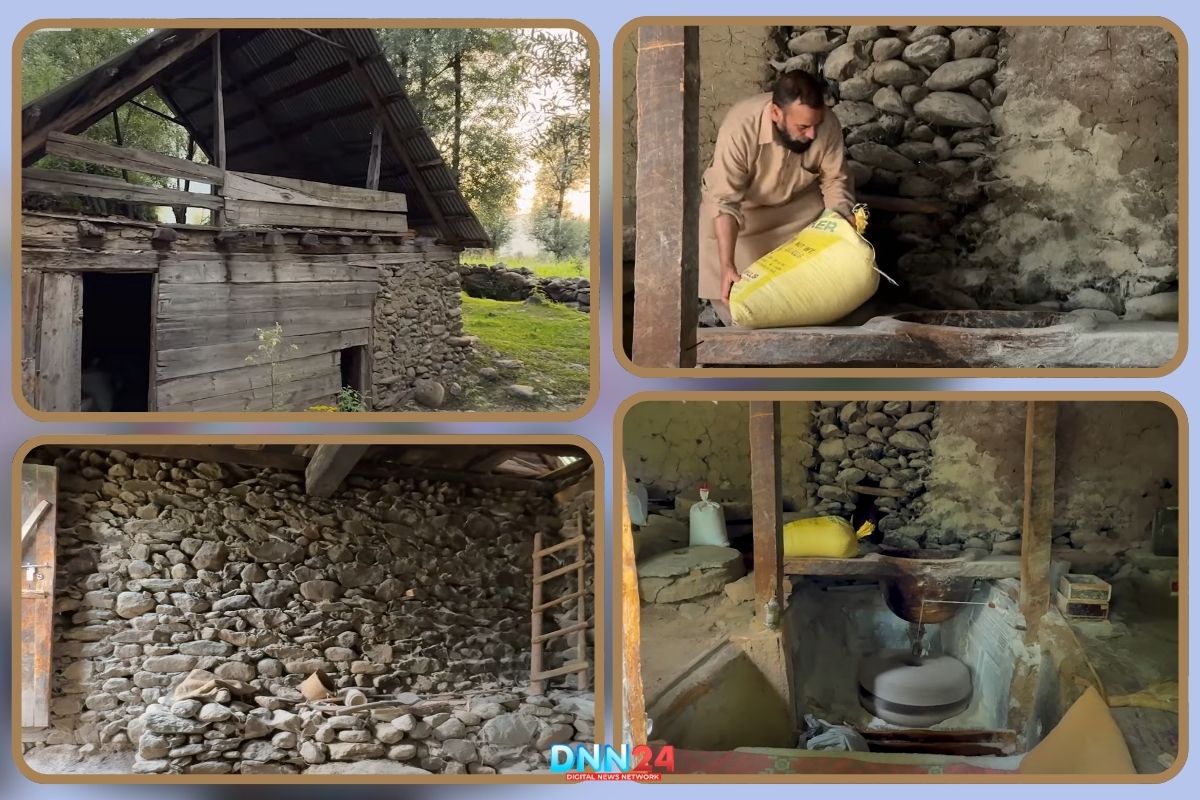
The difference lies in the grinding process. Electric mills run at high speeds and generate excessive heat that destroys many nutrients in the grains. But the slow, steady grinding of stone mills preserves all the natural goodness. The flour has a different taste, better texture, and higher nutritional value. People travel from far places like Srinagar, Sonamarg, Kulgam, and Ganderbal to get flour from this traditional mill.
Zulfikar charges only half a kilogram as payment for grinding five kilograms of grain—a rate he has kept unchanged for years despite rising costs everywhere. “Whether the customer is rich or poor, we take only half a kilogram for 5 kg grinding,” he says. This shows his commitment to serving the community rather than making profits. On a good day, he can process about four maunds (roughly 160 kg) of grain.
Zulfikar Ali Shah: The Fading Tradition and Its Challenges
Today, Zulfikar’s mill is one of the last surviving water mills in the area. “There used to be about 10 such mills from down to up in our valley,” he recalls sadly. “Now only 2-3 are running. The rest have closed down.” The main reason for this decline is that the new generation is not interested in continuing this traditional work, and local farming has also decreased significantly.
The seasonal nature of the work adds to the challenges. The mill operates only from spring to October when water flows in the streams. During the winter months, there’s no water, so the mill remains closed. “In the winter, this closes down. There’s no water here,” explains Zulfikar. This seasonal limitation, combined with reduced local grain production, makes it challenging to earn a living from this traditional occupation.
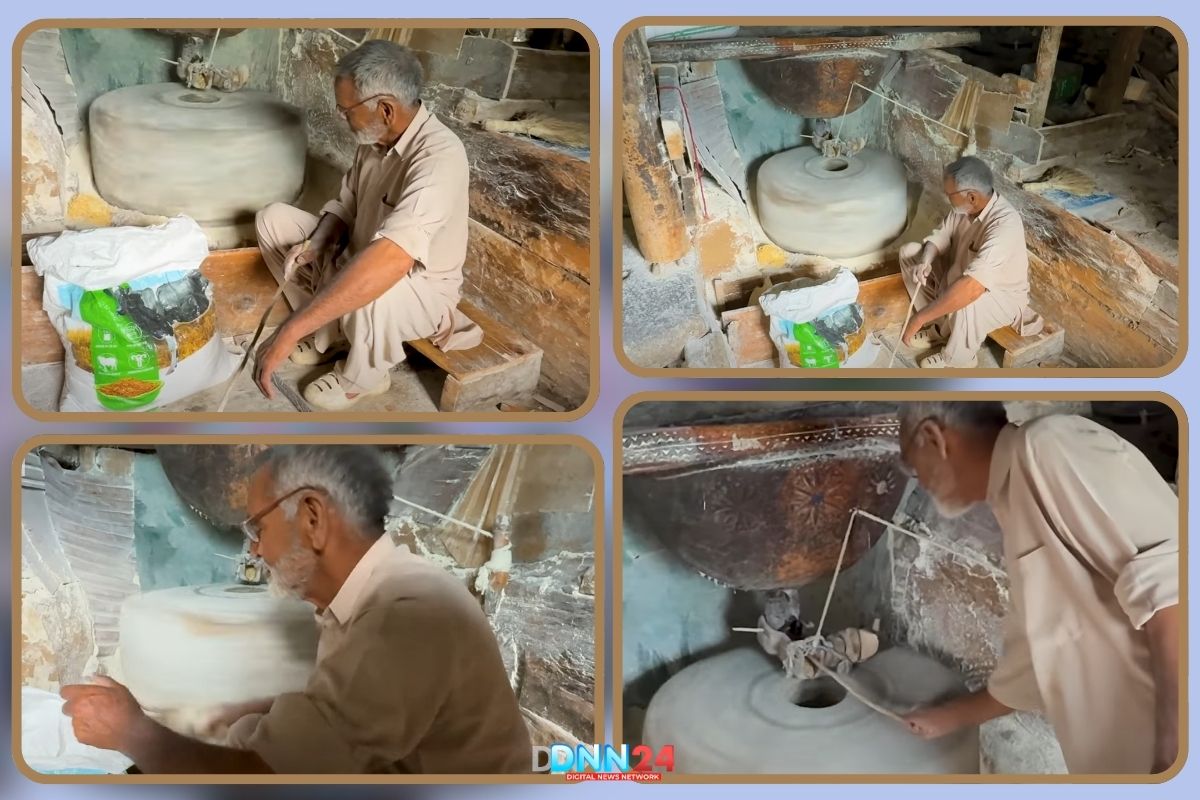
Another major challenge is that young people prefer easier jobs and are not willing to learn a skill that requires physical effort and patience. “The new generation doesn’t want to do this hard work,” Zulfikar observes. “They’re not growing crops, so there’s less grain to grind. This is why our business has also reduced.” The lack of interest from younger people means that when the current mill operators stop working, this ancient tradition might disappear forever.
Zulfikar Ali Shah’s Mission to Preserve Heritage
Despite all the challenges, Zulfikar remains determined to keep this beautiful tradition alive. “My mission is to stay with this work as long as I can walk and move,” he says with determination. “After that, only Allah knows what will happen.” His words show the deep love and responsibility he feels toward preserving this part of Kashmir’s cultural heritage.
Zulfikar represents the bridge between our past and present. He carries forward the wisdom of his ancestors while serving the needs of modern people who are becoming more health-conscious and looking for natural, chemical-free food options. His mill is not just a business – it’s a living museum that shows how our forefathers lived in harmony with nature.
His story teaches us important lessons about sustainability, community service, and the value of traditional knowledge. In a world where everything is becoming automated and artificial, Zulfikar’s water mill reminds us that sometimes the old ways are still the best. His dedication ensures that future generations can still experience the taste of naturally ground, stone-milled flour and understand how our ancestors created excellent solutions using simple, natural methods.
The sound of flowing water, the turning of wooden wheels, and the grinding of ancient stones in Zulfikar’s mill create a beautiful symphony that connects us to our roots and shows us the path to a more sustainable future.
Also Read: From Ashes to Hope: The Journey of Atchayam Trust’s Mission to End Begging in India
You can connect with DNN24 on Facebook, Twitter, and Instagram and subscribe to our YouTube channel.

